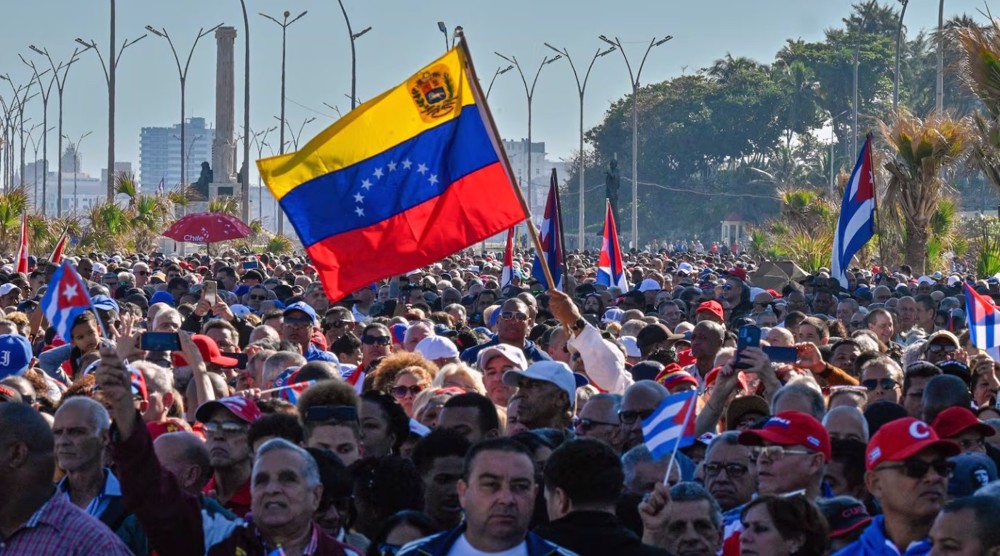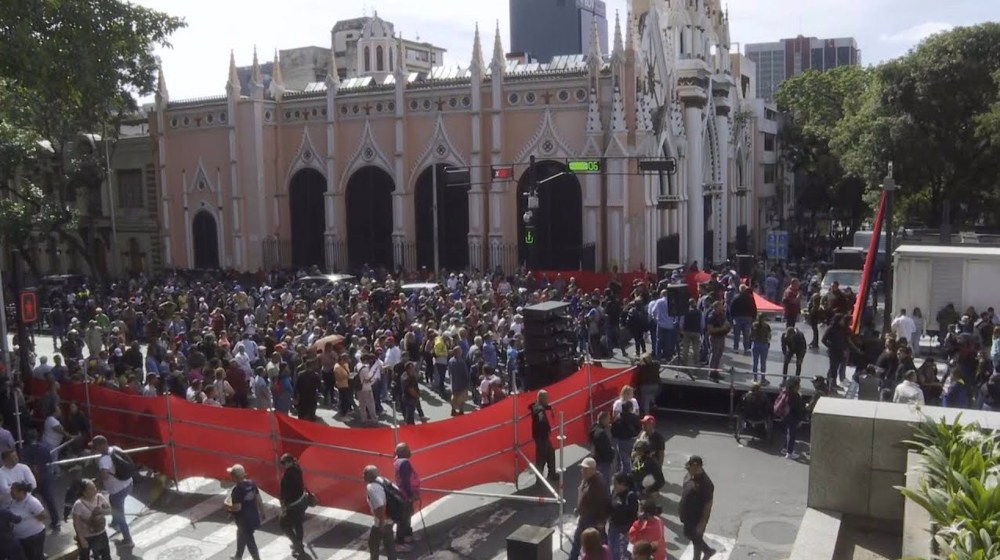Millions of Nigerians go hungry as floods compound hardship
Unrelenting price increases and a brutal insurgency have already made it hard for Nigerians in northeastern Borno State to feed their families.
When a dam collapsed in September, flooding the state capital and surrounding farmland, many people ran out of options.
Now they queue for handouts in camps for those displaced by fighting between extremist rebels and the military. When those run out, they seek work on local farms where they risk being killed by local bandits.
Indo Usman is one of those getting handout food. She and her family are sheltering in a bare room at Gubio, an unfinished housing project for state government workers about 96km (60 miles) northwest of Maiduguri that has been turned into an improvised displacement camp.
Usman had been trying to get back on her feet by rearing animals for slaughter during Muslim feasts, but lost them all in the flood.
''My eyes are just hurting from crying for so long that I cannot even cry again, because of the situation that I've found myself in,'' she said.
She repeatedly fled insurgent attacks in rural Borno over several years and was trying to rebuild a life in Maiduguri with her husband and their six children when the flood came.
The flood washed that all away, driving her, her husband and their six children to bare room at Gubio, an unfinished housing project about 96 km (60 miles) northwest of Maiduguri that has become a displacement camp.
''We rely solely on the food that we get here. There is a woman that is helping me because the queue is so long. She gave me her card so I can get food for my children and myself,'' she told Reuters.
Torrential rains and floods in 29 of Nigeria's 36 states this year have destroyed more than 1.5 million hectares of cropland, affecting more than nine million people, according to the Food and Agriculture Organization of the United Nations.
Climate change is a factor, as is Nigeria's poorly maintained or non-existent infrastructure as well as vulnerabilities caused by the collapsing Naira currency and the scrapping of a government fuel subsidy.
Roughly 40% of Nigeria's more than 200 million people live below the international poverty line of $2.15 per person per day, the World Bank estimates.
Already, 25 million people live in acute food and nutrition insecurity - putting their lives or livelihoods in immediate danger, according to a joint analysis by the government and UN agencies. That number is expected to rise to 33 million by next June-August.
Trust Mlambo, head of program for the northeast at the World Food Programme, told Reuters that the situation is so dire and there are multiple crises happening concurrently.
"Beyond a food insecurity that is there, there is conflict and displacement and with the climate change we have witnessed a situation where we have immense devastation due to the floods," he said.
Zainab Abubakar, a self-employed tailor who lived relatively comfortably with her husband and six children in a house with a refrigerator, was woken up by water rushing into her bedroom at midnight.
Abubakar and her family fled their home while the flood destroyed and carried everything away in her house, including her sewing machine. Now, they are sheltering at Gubio and collecting rice from aid agencies in a plastic bucket.
''The truth is that since coming here, I have not been in need of anything, I have water, and they give us food, just that I have not gotten soap since I got here,'' she said.
In Banki, on Nigeria's border with Cameroon about 133 km (83 miles) southeast of Maiduguri, a mother of eight children, Mariam Hassan lost crops of maize, pepper and then okra in repeated flooding of her subsistence farm this year, leaving her with nothing to eat or sell.
''I used to eat 3 meals a day, but now I barely manage to eat once, and sometimes none at all. My children and I have been starving, the flood incident left us with no food. I have really suffered," said Hassan.
With international donors focused on emergencies in Gaza, Ukraine and Sudan, Mlambo said there was not enough funding to fully meet Nigeria's growing need for food aid.
''What is really happening is, we are really prioritizing the hungriest of the hungry," he said.
(Source: Reuters)
Hamas: Israel escalating ceasefire violations in Gaza
Venezuela's government declares unwavering unity behind Maduro
VIDEO | Global outcry over Venezuela president abduction
Iran keeps wheat import subsidies despite cutting other food supports
Venezuelan military stands with acting president after US kidnapping of Maduro
VIDEO | Press TV's news headlines
VIDEO | Protesters in Toronto slam US kidnapping of Venezuelan president
Israeli troops detain, intimidate Palestinian toddler in West Bank









 This makes it easy to access the Press TV website
This makes it easy to access the Press TV website